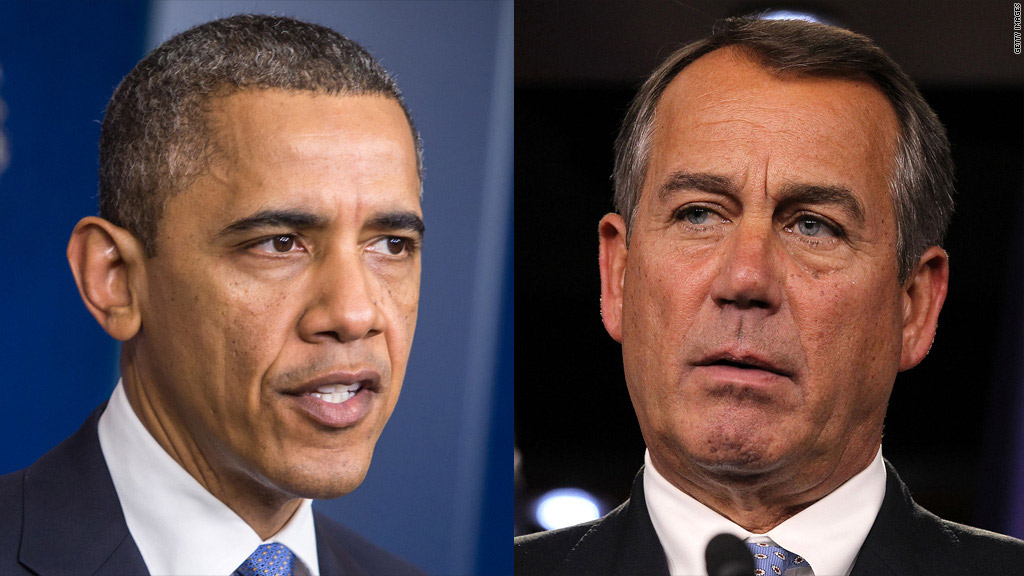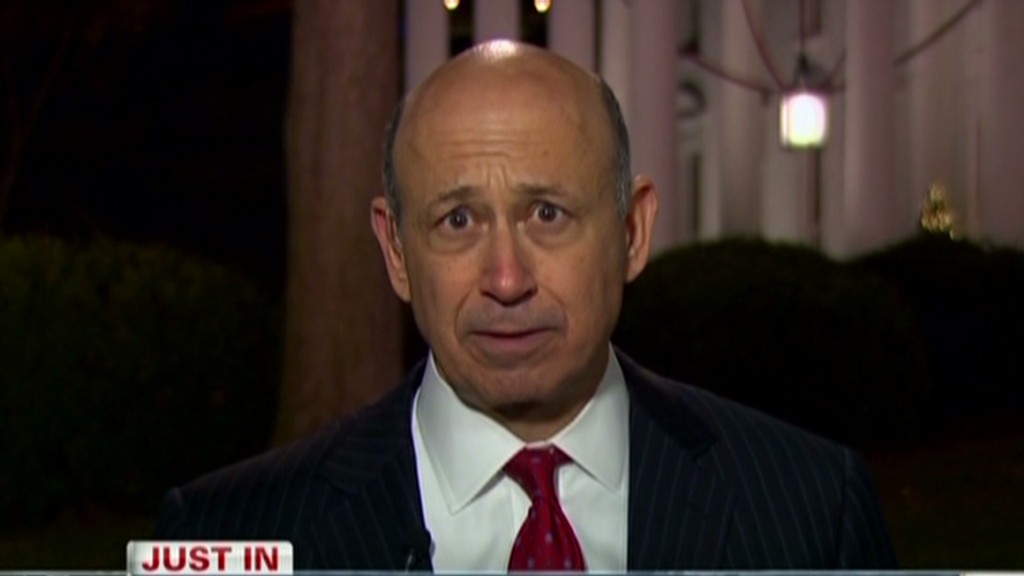
The line in the sand in the fiscal cliff talks is clear: Democrats will only agree to a deal that raises the tax burden on high-income households.
Democrats want to accomplish that goal largely through higher tax rates. Republicans hate that idea and say any new revenue should be raised by curbing tax breaks.
Where a final deal ends up is anyone's guess.
President Obama, in his most recent budget, has put forth tax proposals that would raise about $1.6 trillion over a decade. But in a press conference earlier this month, he talked about the need to raise about $1 trillion.
Whatever revenue target the parties agree to, there are many paths to achieve it. And any of them can be dialed up or down to address fairness and economic concerns.
RAISE RATES
Let Bush tax cuts expire on income over $250,000: Obama and Democrats want to let the Bush tax cuts expire on income over $250,000 ($200,000 for singles). They would raise the top two income tax rates, increase high-income households' capital gains and dividend rates, and re-impose limits on their personal exemptions and itemized deductions. It would also increase the estate tax rate.
All told, that proposal could raise close to $1 trillion over 10 years.
Let Bush tax cuts expire on income over $500,000: Allowing the Bush tax cuts to expire on income over $500,000 ($400,000 for singles) could raise at least $315 billion over a decade, according to Tax Policy Center data.
Let Bush tax cuts expire on income over $1,000,000: If they expire on income over $1 million, at least $242 billion could be raised.
Impose higher tax rate on fund managers: The president has called for taxing "carried interest" as ordinary income, raising an additional $13.5 billion over a decade.
Managers of private equity, venture capital and hedge funds are only taxed 15% on the portion of their compensation known as carried interest, which is derived from a fund's profits when an investment is sold.
If carried interest were taxed as ordinary income, those managers would pay more than double the rate they do now.
ADD A MILLIONAIRE MINIMUM TAX
Impose a "Buffett Rule": Billionaire investor Warren Buffett has been very vocal about calling for higher taxes on the rich.
Obama has proposed a "guiding principle" for tax reform: Those making $1 million or more should have to pay at least 30% of their income in federal income taxes.
Senate Democrats proposed a bill last spring that would have imposed a 30% minimum effective federal tax rate on adjusted gross income above $1 million, although it would phase in between $1 million and $2 million.
The bill was estimated by the Joint Committee on Taxation to raise an estimated $47 billion over a decade if all the Bush tax cuts expire. By contrast, the measure would raise $162 billion relative to a scenario in which all the Bush tax cuts are extended.
CURB TAX BREAKS
Cap itemized deductions by a dollar amount: The highest-income households enjoy more than 40% of the benefits of all tax breaks taken every year.
If no one could claim more than $50,000 in itemized deductions, that could raise roughly $749 billion over a decade, the Tax Policy Center estimates. And nearly 90% of that revenue would come from households making more than $200,000.
If lawmakers wanted to exclude charitable contributions from that cap, that still could raise $490 billion over 10 years.

Cap rate used to calculate tax savings: Obama has proposed limiting the value of deductions and exclusions for high-income households.
Normally one multiplies one's top tax rate by the amount of a deduction to calculate the taxes saved. But Obama would cap that rate at 28%, which is below the top two income tax rates. So someone in the 35% bracket today would save $35 on a $100 deduction. Under Obama's proposal, she would save $28.
The proposal is estimated to raise $523 billion over 10 years, assuming the Bush tax cuts expire on income over $250,000.
Limit the after-tax value of certain tax breaks: Lawmakers could enact an after-tax cap that applies to itemized deductions, plus the child tax credit and the tax-free benefit workers receive when their employer helps pay for their health insurance.
A cap set at 2% of one's adjusted gross income or $10,000, whichever is less, applied only to households making more than $200,000, could raise more than $860 billion over 10 years, according to the Committee for a Responsible Federal Budget.


